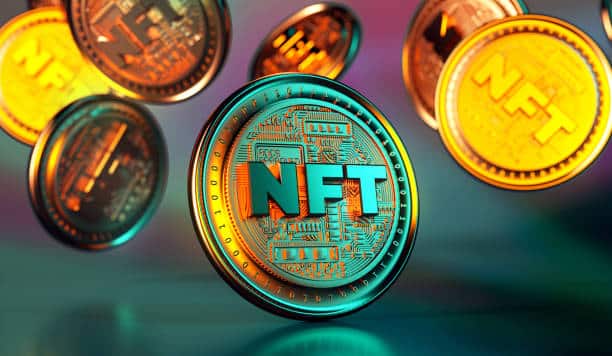The British Web3 community celebrated an important legal precedent in early May when the High Court of Justice in London, the closest analog to the United States Supreme Court, ruled that nonfungible tokens (NFT) are “private property.” However, there is a catch: the court’s ruling states that this private property status does not extend to the actual underlying content that NFT represents. Cointelegraph spoke with legal experts to learn how this decision might affect the legal landscape in the United Kingdom.
The theft of Boss Beauties
Lavinia D. Osbourne, founder of Women in Blockchain Talks, tweeted in February 2022 that two digital works had been poached from the Boss Beauties — a 10,000-NFT set of empowered women created by “Gen Z change-makers” and displayed at the New York Stock Exchange.
The tokens came with a variety of benefits, including access to exclusive events, free books, and reduced licensing fees. Osbourne claimed that the stolen pieces from her MetaMask wallet were later discovered on the OpenSea market. Mitmark, security, and intelligence organization aided her in tracing down the NFTs.
The case was brought to court in March, and on April 29, The Art Newspaper reported on a ruling by the United Kingdom’s High Court that recognized NFTs as legal property.
Furthermore, the court issued an injunction freezing the assets on Ozone Networks’ (OpenSea’s) accounts and ordered OpenSea to disclose information about the two account holders in possession of the stolen NFTs. Shortly after, OpenSea ceased selling these NFTs — Boss Beauties 680 and 691.
The injunction was granted against “persons unknown” because the identities of the wallet holders are unknown. Stevenson Law Firm termed a freezing injunction “quite a draconian (viz old fashioned and harsh) remedy,” defining it as a “nuclear weapon” of the law in its comment on the decision.
Following the court order, Osbourne triumphantly declared:
Women in Blockchain Talks was founded to make the opportunities that blockchain provides available to everyone, regardless of age, gender, nationality, or background. This case should help to make the blockchain space safer by encouraging more people to interact with exciting and meaningful assets like NFTs.
The token and the asset
Racheal Muldoon, the case’s counsel, emphasized the ruling’s “utmost significance,” saying it removes any uncertainty that NFTs are property in and of themselves, distinct from the thing they represent, under English and Welsh law. However, it is precisely this detail that has led some experts to doubt the court’s decision’s revolutionary significance.
While NFTs are already treated as property by the Internal Revenue Service in the United States, the proclaimed distinction between the token and the underlying asset does little to fill the current legislative void in the United Kingdom and the United States. You own a token if you have a token. But not necessarily any other rights, noted Juliet Moringiello, professor at Widener University Commonwealth Law School, to Artnet News.
According to Emily Gould, assistant director of the Institute of Art and Law, in her opinion piece on the case, U.K. courts’ decisions, regulatory developments, and governmental studies over the last few years have been increasingly consistent in categorizing crypto assets as property. She specifically mentioned AA v. Persons Unknown in 2019 and the “Legal statement on crypto assets and smart contracts” report presented by the LawTech Delivery Panel’s UK Jurisdiction Taskforce in the same year.
What comes next?
The underlying property or asset that the NFT represents, whether that artwork or any other copyrightable material, is still governed in the U.K. by the same copyright laws as in the US, Tom Graham, CEO and co-founder of Web3 company Metaphysic.ai, told Cointelegraph. This decision does not assist in clarifying that distinction.
The ruling, however, set an “interesting precedent,” according to Graham, because the court issued an injunction against OpenSea. This is significant in terms of courts intervening and issuing injunctions in cases where NFTs have been stolen. He continued:
It is now clear that NFTs are subject to the same property laws in the United Kingdom as all other property. It establishes a great precedent for people investing in NFTs that their property rights will be protected by the legal system, at least in the United Kingdom.
Anna Trinh, chief compliance officer of digital finance firm Aquanow, told Cointelegraph that the ruling is not revolutionary, but it is of “executive importance.” Establishing legal precedent that confirms what most people already believe to be true may give NFT platforms more confidence in demanding that malevolent actors’ accounts be frozen. Trinh stated:
I don’t think the recognition of NFTs as a private or personal property comes as much of a surprise. NFTs can be bought, sold, or traded, implying that they are, in essence, personal property. It would have been even more shocking if the court had ruled that NFTs did not constitute personal property.
Trinh does not consider the existing legal safeguards for the underlying assets to be problematic. These are governed by the contract’s content at the time of purchase, so depending on the nature of the asset, both contractual law and intellectual property law would apply. According to Trinh, there are more pressing legal issues that regulators should focus on, such as creators’ rights.
Source link




